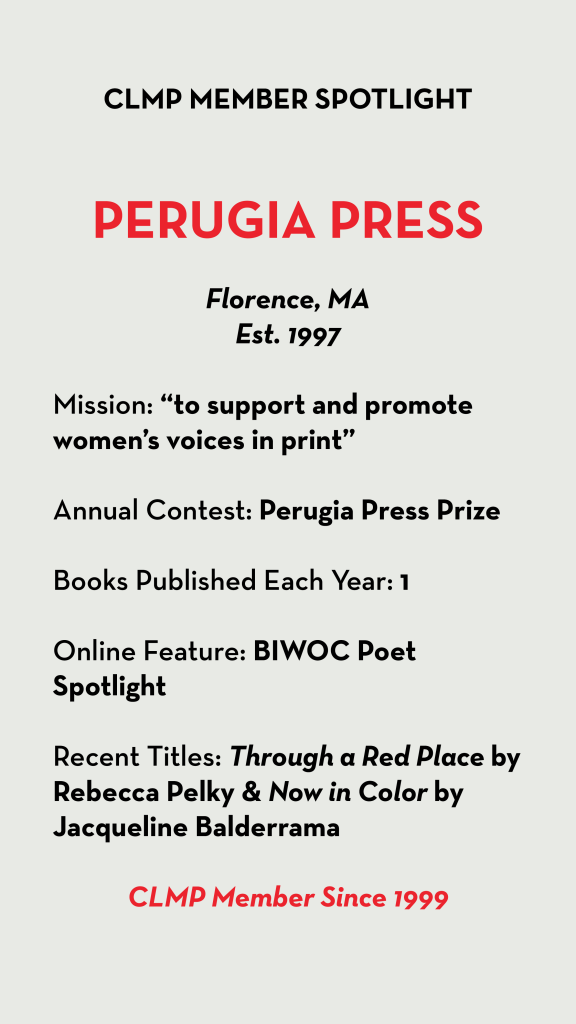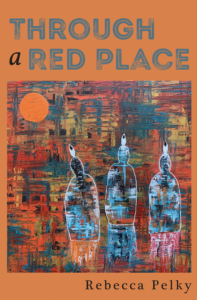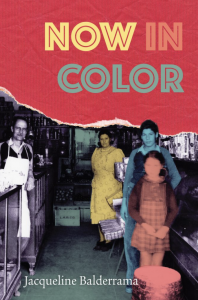We spoke with Rebecca Olander, editor and director of Perugia Press, in our latest Member Spotlight.
What is the history behind Perugia Press? When was it founded and what is its mission?
 Perugia Press, founded in 1997 by Susan Kan, is a nonprofit press that publishes one beautifully designed book each year: the winner of the Perugia Press Prize, our annual national contest for first or second books of poetry by women. I took over as editor/director in 2016 as we celebrated our twentieth anniversary. Our mission is to support and promote women’s voices in print, and we aim to expand the audience for poetry by making books that welcome longtime readers of poetry and those new to poetry. We celebrate and promote our poets, and poetry, whenever we can, through social media and at local, regional, and national book fairs, readings, and events. We also maintain resources for educators who would like to incorporate our books into their curricula.
Perugia Press, founded in 1997 by Susan Kan, is a nonprofit press that publishes one beautifully designed book each year: the winner of the Perugia Press Prize, our annual national contest for first or second books of poetry by women. I took over as editor/director in 2016 as we celebrated our twentieth anniversary. Our mission is to support and promote women’s voices in print, and we aim to expand the audience for poetry by making books that welcome longtime readers of poetry and those new to poetry. We celebrate and promote our poets, and poetry, whenever we can, through social media and at local, regional, and national book fairs, readings, and events. We also maintain resources for educators who would like to incorporate our books into their curricula.
What inspired this decision to actively support and promote women’s voices, including transgender women and female-identified individuals?
We have always only published women, so that is braided into the DNA of our press and is part of our explicit feminist mission. We were formed in response to a gender imbalance in the publishing world, and for 25 years we have done our part to tip the scales more into balance. Poets who submit their work to Perugia must be women, which is inclusive of transgender women and female-identified individuals. Additionally, Perugia Press seeks to highlight marginalized and underrepresented voices in our publications, and to that end we encourage submissions written by poets of all abilities, ages, and sexual orientations, and from across all cultural, socioeconomic, ethnic, racial, and religious backgrounds.
Perugia Press accepts submissions through the annual Perugia Press Prize. Can you tell us more about this contest model and how it differs from an open reading period?
 Because we are a micro nonprofit press, we are funded by donations and grants, book sales, and submission fees. All of these areas directly impact the capacity of our press to run successfully and to support poets as, and after, they publish with us. We’re proud of our contest model for many reasons. We read anonymously and collaboratively. We have a large, rotating, talented, and dedicated volunteer team that reads and evaluates batches of submitted manuscripts, and every batch has two readers at every stage. Once we’ve winnowed the submissions to a group of sixteen semifinalists, we then ask eight judges to gather over the course of a weekend to read, rank, and discuss the semifinalists, narrowing those down to a group of three to four finalists. I then weigh in as editor/director on the finalists, along with three other finalist judges (usually Perugia Press poets), and we pick the winner together.
Because we are a micro nonprofit press, we are funded by donations and grants, book sales, and submission fees. All of these areas directly impact the capacity of our press to run successfully and to support poets as, and after, they publish with us. We’re proud of our contest model for many reasons. We read anonymously and collaboratively. We have a large, rotating, talented, and dedicated volunteer team that reads and evaluates batches of submitted manuscripts, and every batch has two readers at every stage. Once we’ve winnowed the submissions to a group of sixteen semifinalists, we then ask eight judges to gather over the course of a weekend to read, rank, and discuss the semifinalists, narrowing those down to a group of three to four finalists. I then weigh in as editor/director on the finalists, along with three other finalist judges (usually Perugia Press poets), and we pick the winner together.
Another thing we are proud of regarding our contest is the new fee structure we instituted in 2021. We now have a full-rate submission option (which comes with a choice of a Perugia title), a reduced-rate submission option, and a fee-free submission option for BIWOC poets (which we describe as a reparation and not an assumption of financial need). Poets may choose the option that works best for them, and this has made our contest more accessible to all. It does affect our revenue, but the benefits are important enough to us—and to the women who submit to the press—that we are finding ways to make this work.
What are some of the challenges and rewards of publishing a single book every year?
 A challenge is choosing just one manuscript out of the many, many gorgeous, strong, inventive, intelligent collections we are lucky enough to read each year (usually around 500 submissions or more). It really is a near impossible task to choose one; there are numerous books that could be the winner each year. Of course, the reward to this model is related to the challenge. We are honored by each woman who trusts us to read her work when it is sent our way. And it’s a joy to do so for all involved.
A challenge is choosing just one manuscript out of the many, many gorgeous, strong, inventive, intelligent collections we are lucky enough to read each year (usually around 500 submissions or more). It really is a near impossible task to choose one; there are numerous books that could be the winner each year. Of course, the reward to this model is related to the challenge. We are honored by each woman who trusts us to read her work when it is sent our way. And it’s a joy to do so for all involved.
Our one-at-a-time model also means that each chosen poet gets the experience of working on her book and her book alone with the editor/director and book designer as we collaborate to make a book that she will love. Our books are stunning and the authors are involved in every step of their creation, which is something special about being published by Perugia.
What is the Emerging BIWOC Poet Spotlight?
As part of our ongoing antiracism efforts at Perugia Press, the Emerging BIWOC Poet Spotlight aims to champion the work of Black, Indigenous, and women of color poets in order to help amplify their work and as part of creating a welcoming environment to which to submit work as well. In the wake of the killings of Ahmaud Arbery, George Floyd, and Breonna Taylor in 2020, we pledged to do more in the way of explicit antiracist action that was related to the mission of our press and would be sustainable and supportive of women poets of color. The idea for this spotlight came from a suggestion from Perugia e-newsletter submitter Dorina Pena when we asked for reader feedback and ideas to add to the other work we were doing and planned to do. We started publishing the feature on our website in September 2020, and we publish one spotlight every month. The women we feature are emerging poets with no more than one full-length book at the time we feature them, which aligns with the women we choose to publish each year in our books. We love learning about new poets to celebrate and hope that our feature helps bring their work to a larger audience (and encourages them and other women poets of color to submit to Perugia as well).

